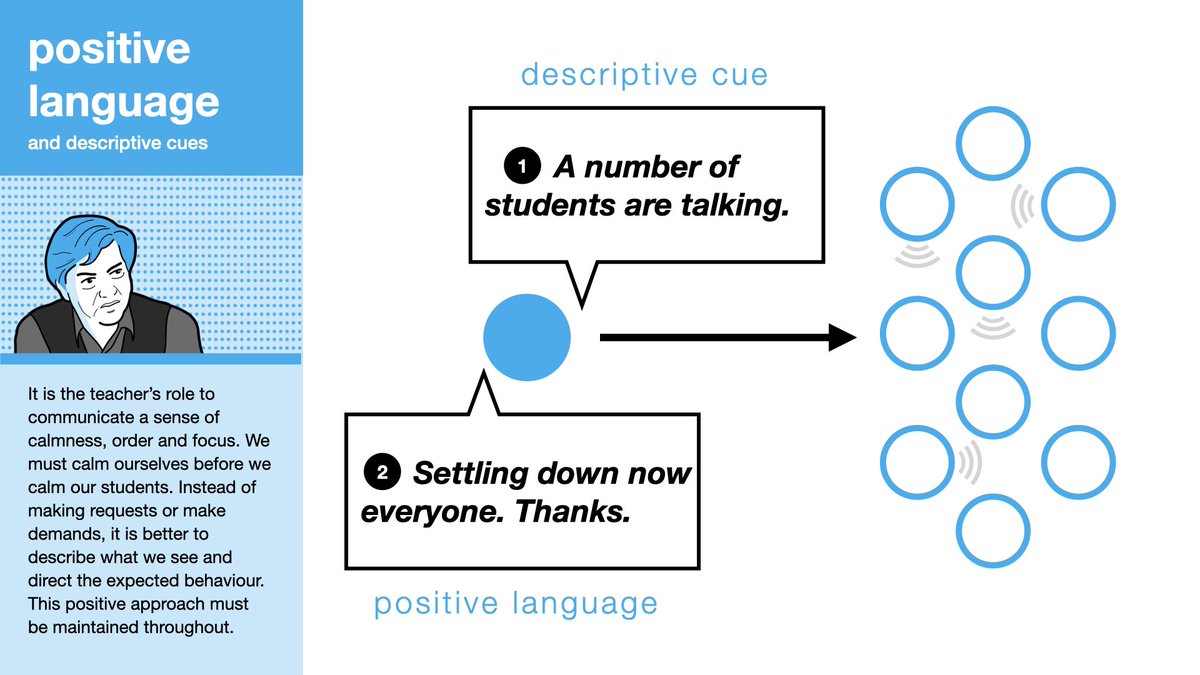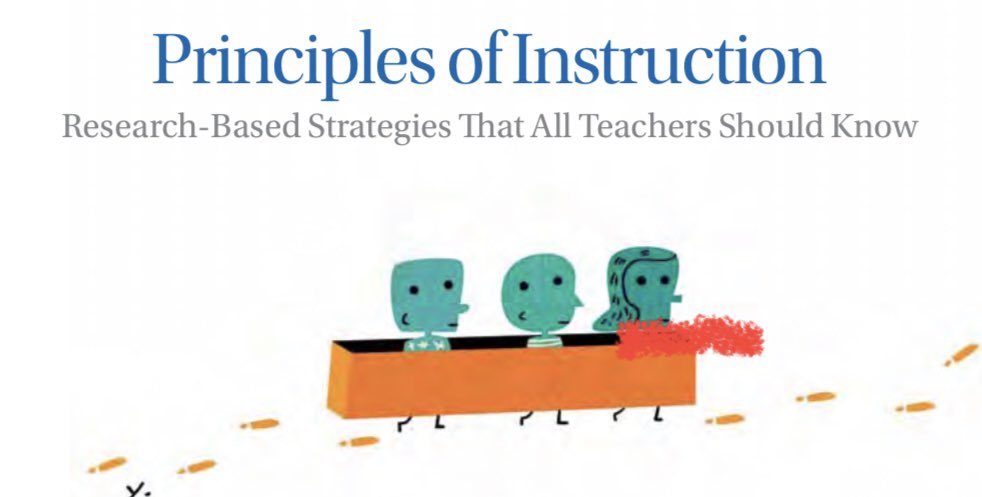
Dean of Professional Growth | English Teacher | 📘📗 Best Selling Author of Teaching One-Pagers 1 & 2 | ⚗️DistillED 5-Minute Email | Information Designer | Dad
How to get URL link on X (Twitter) App

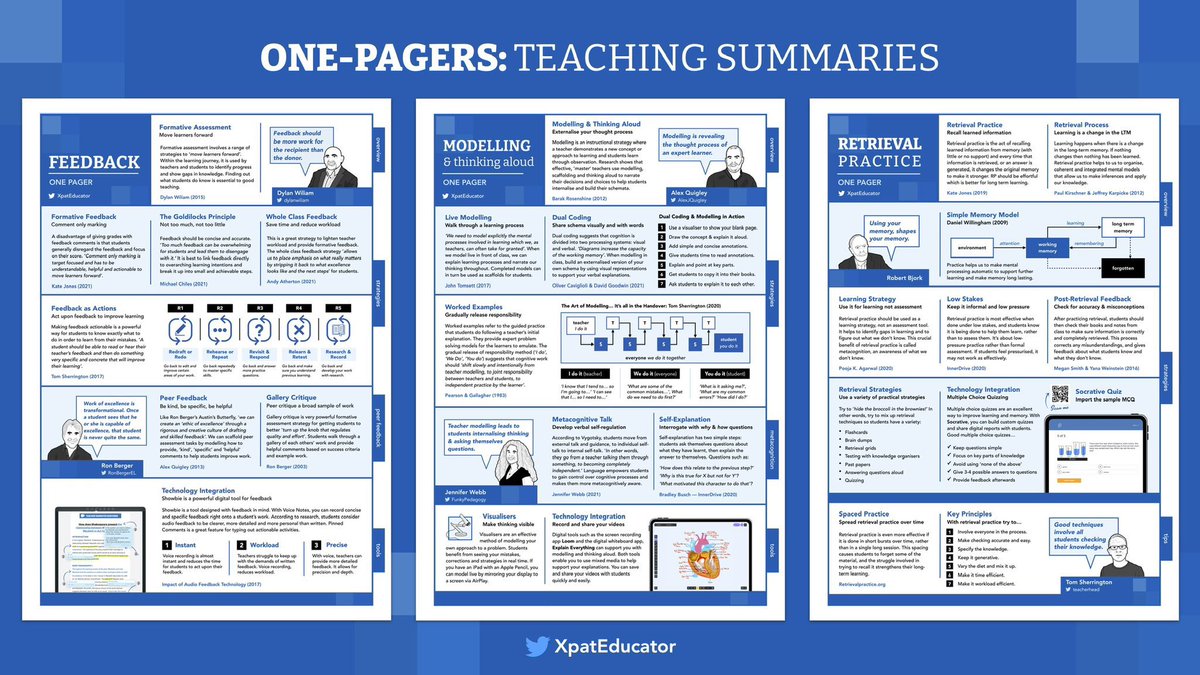
 1/ WIDER READING: One-pagers spotlight the most important evidence-informed ideas and inspire wider reading. Our teachers have been able to focus on deeper exploration at a later date and learn at their own pace.
1/ WIDER READING: One-pagers spotlight the most important evidence-informed ideas and inspire wider reading. Our teachers have been able to focus on deeper exploration at a later date and learn at their own pace.
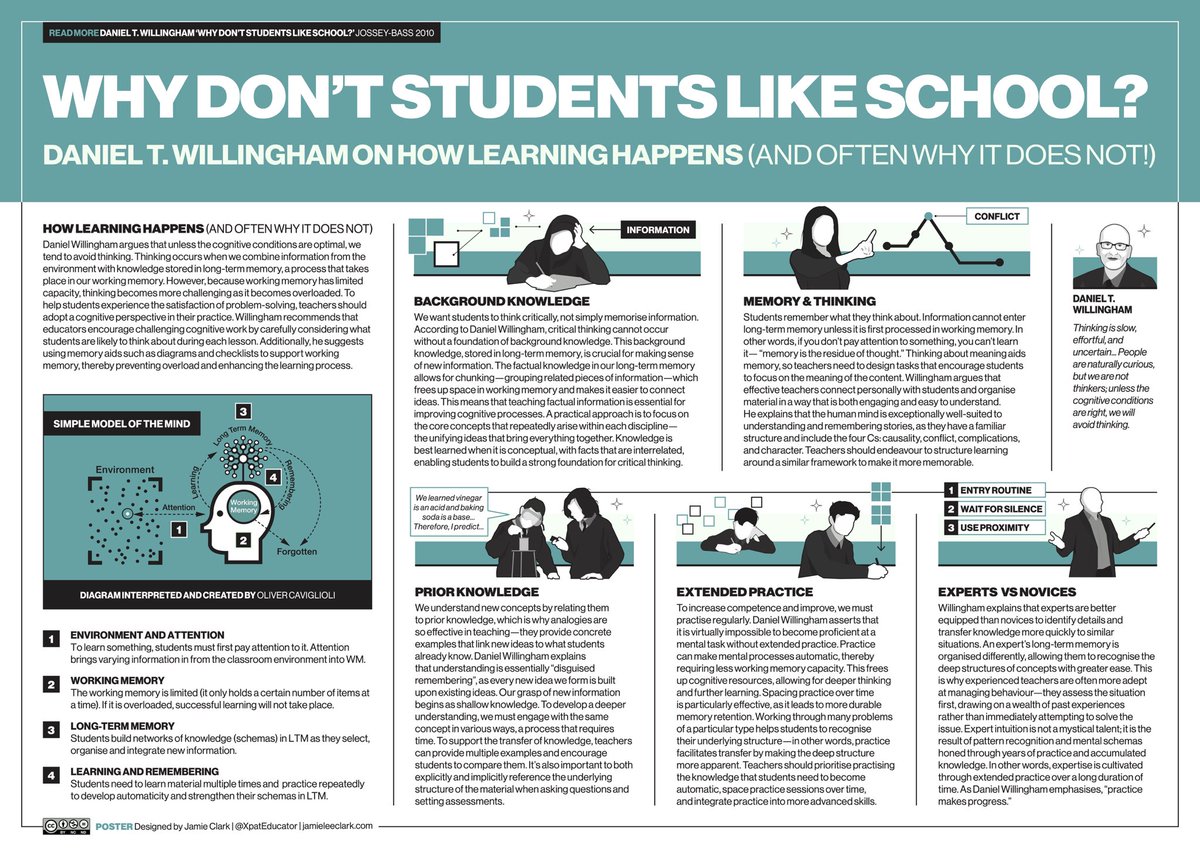
 🧠 WM has limited space and thinking becomes increasingly difficult as it gets crowded. ‘Unless the cognitive conditions are right, we avoid thinking.’ Teachers should promote challenging cognitive work by reviewing each lesson in terms of what students will THINK about.
🧠 WM has limited space and thinking becomes increasingly difficult as it gets crowded. ‘Unless the cognitive conditions are right, we avoid thinking.’ Teachers should promote challenging cognitive work by reviewing each lesson in terms of what students will THINK about.
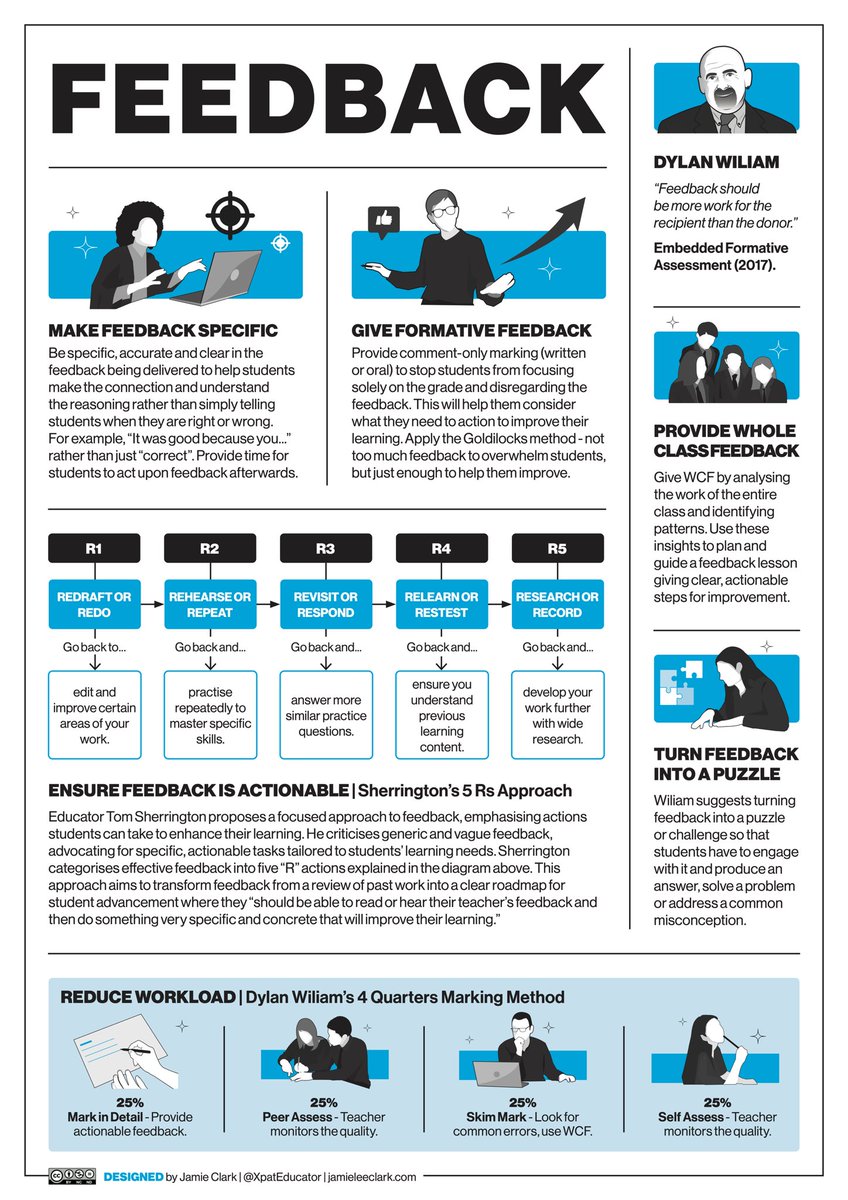
 🎯 **Make Feedback Specific**: Avoid generic comments like "good work" or "needs improvement." Be precise and clear. For example, “Your analysis is strong because you used…” This approach helps students understand exactly what they did well or need to improve.
🎯 **Make Feedback Specific**: Avoid generic comments like "good work" or "needs improvement." Be precise and clear. For example, “Your analysis is strong because you used…” This approach helps students understand exactly what they did well or need to improve.
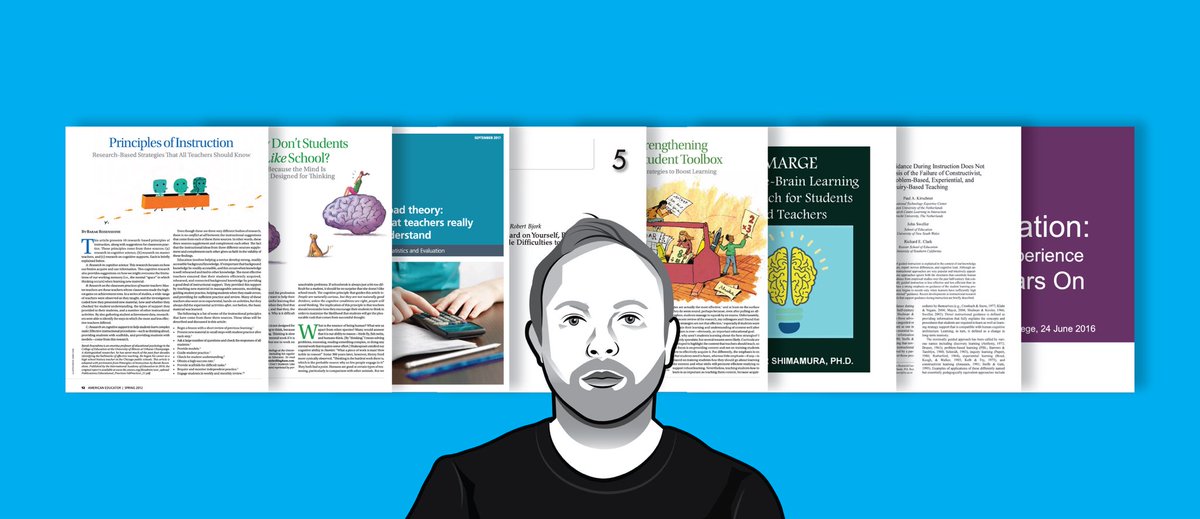
 🪜 Principles of Instruction: Research Based Strategies That All Teachers Should Know by Barak Rosenshine
🪜 Principles of Instruction: Research Based Strategies That All Teachers Should Know by Barak Rosenshine 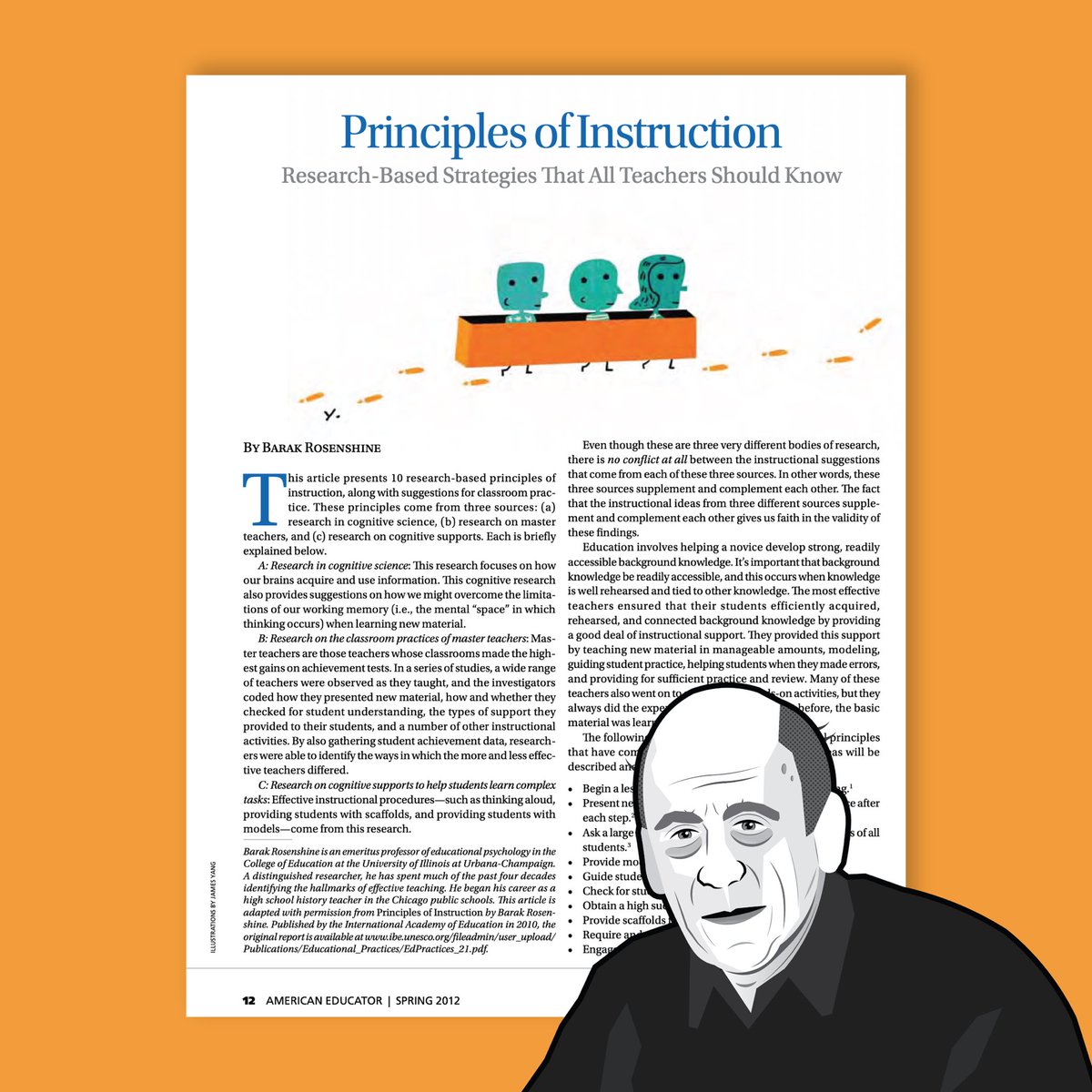
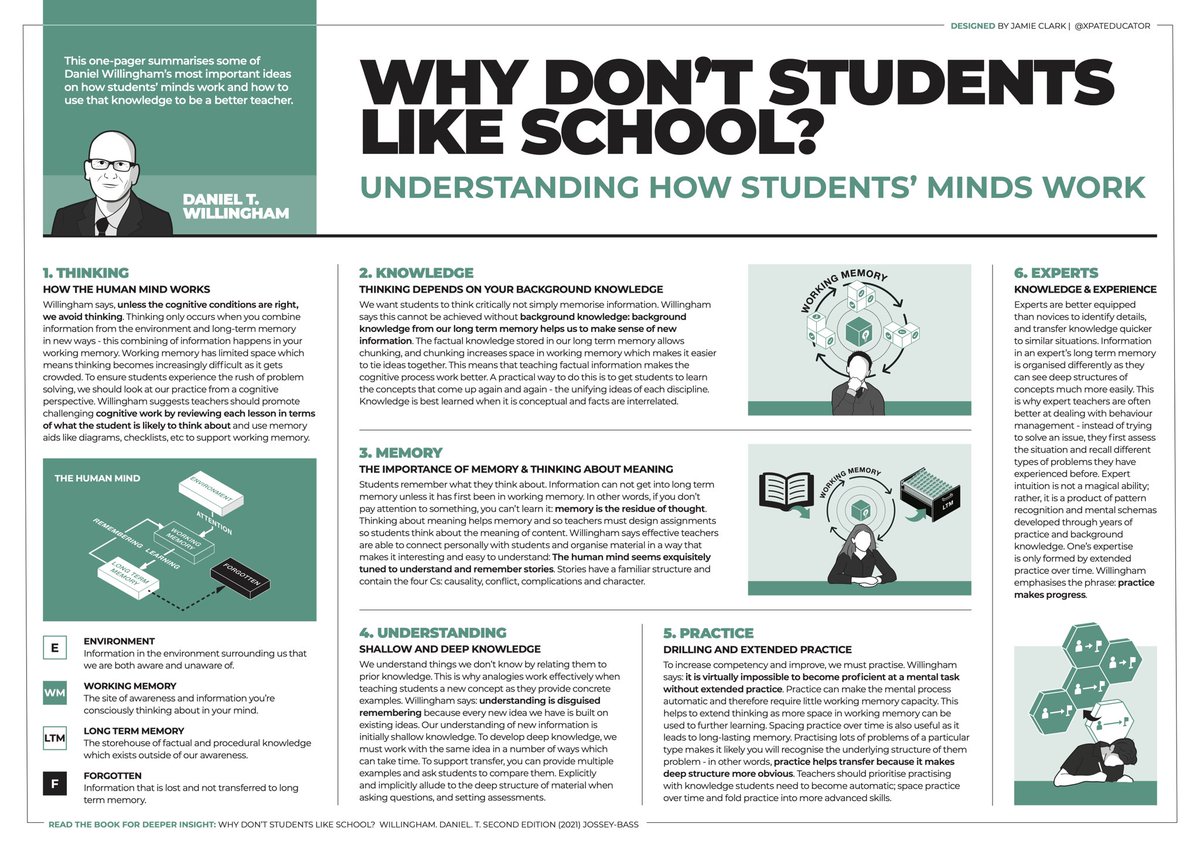
 🧠 WM has limited space & thinking becomes increasingly difficult as it gets crowded. ‘Unless the cognitive conditions are right, we avoid thinking.’ Teachers should promote challenging cognitive work by reviewing each lesson in terms of what students will THINK about.
🧠 WM has limited space & thinking becomes increasingly difficult as it gets crowded. ‘Unless the cognitive conditions are right, we avoid thinking.’ Teachers should promote challenging cognitive work by reviewing each lesson in terms of what students will THINK about.
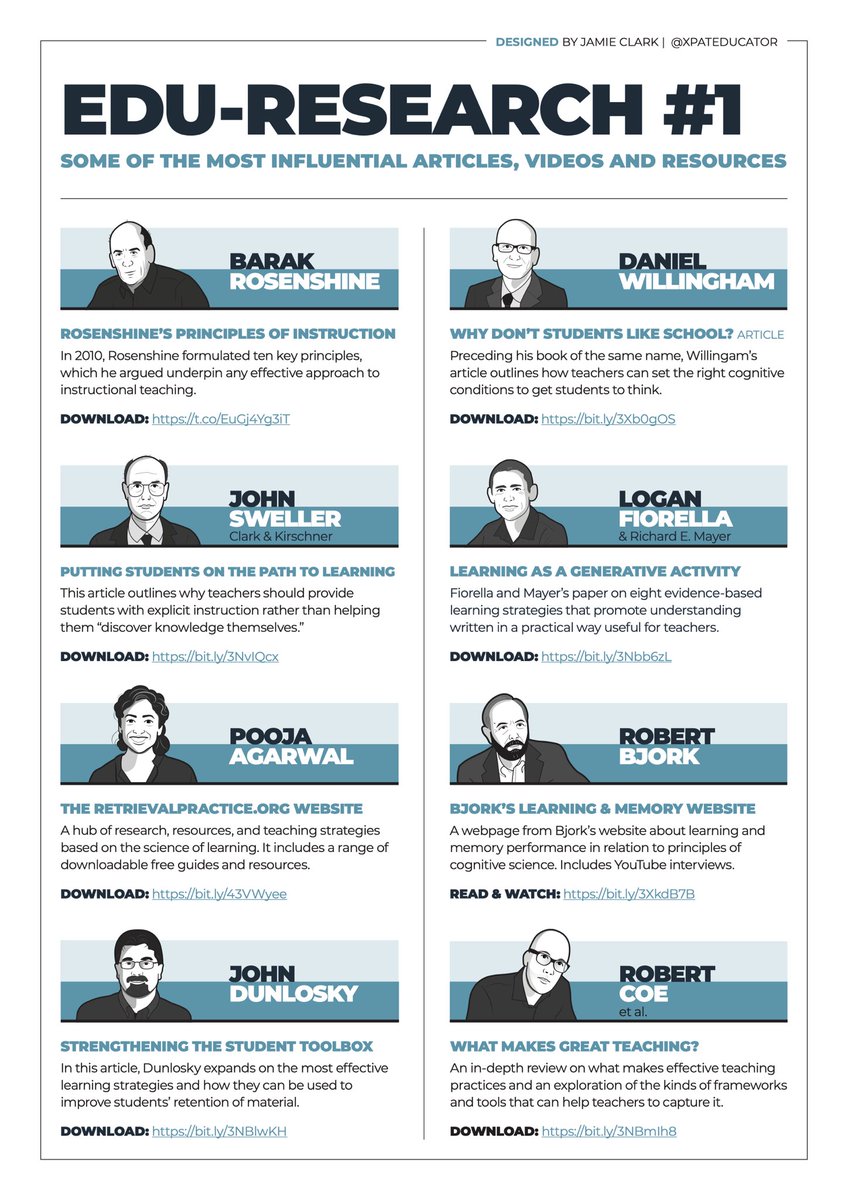

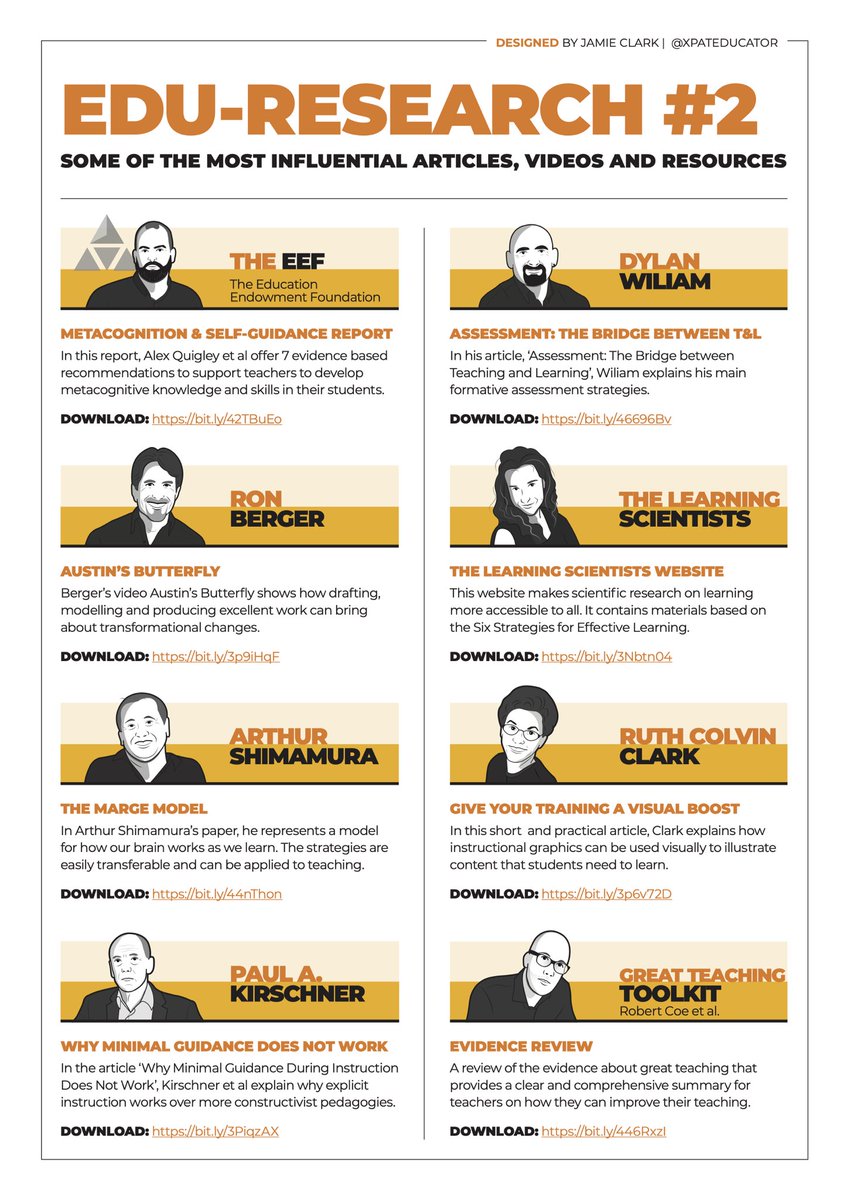 Principles of Instruction: Research Based Strategies That All Teachers Should Know by Barak Rosenshine
Principles of Instruction: Research Based Strategies That All Teachers Should Know by Barak Rosenshine 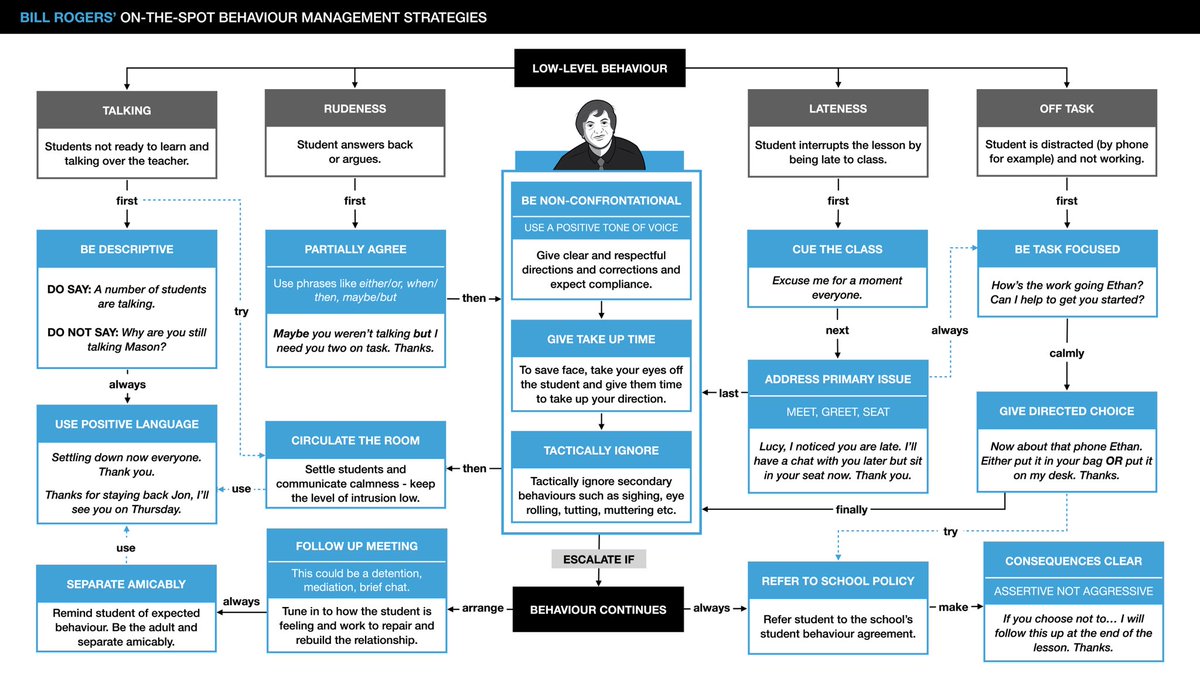
 POSITIVE LANGUAGE
POSITIVE LANGUAGE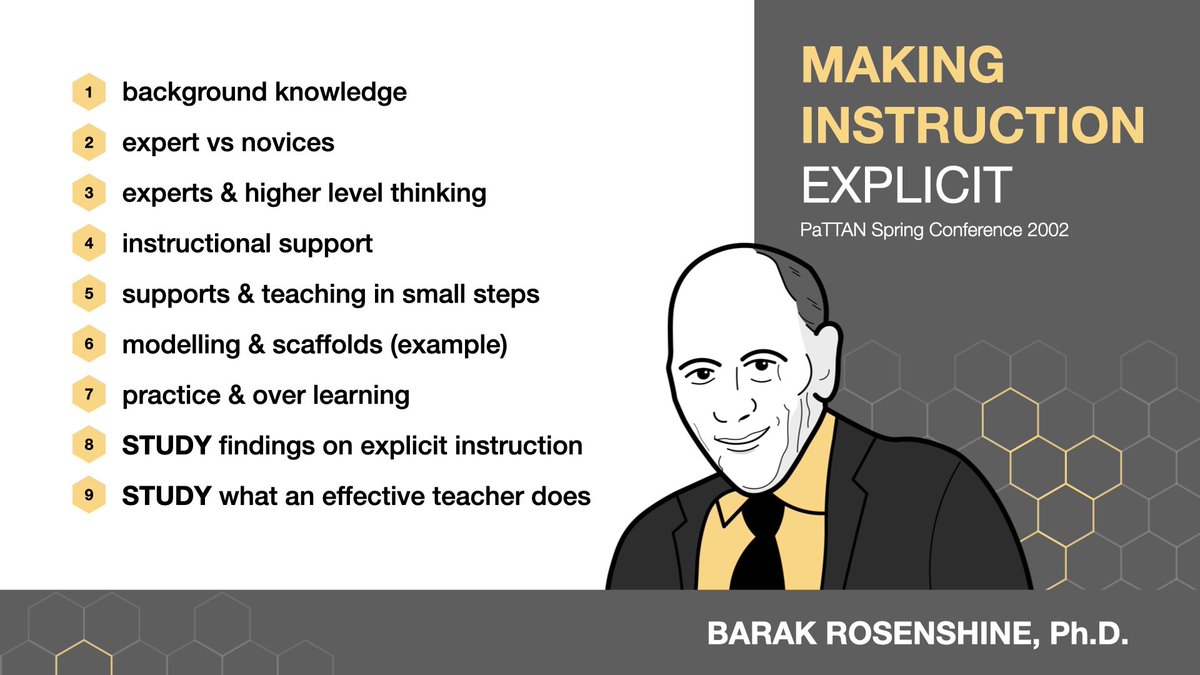
 1. BACKGROUND KNOWLEDGE
1. BACKGROUND KNOWLEDGE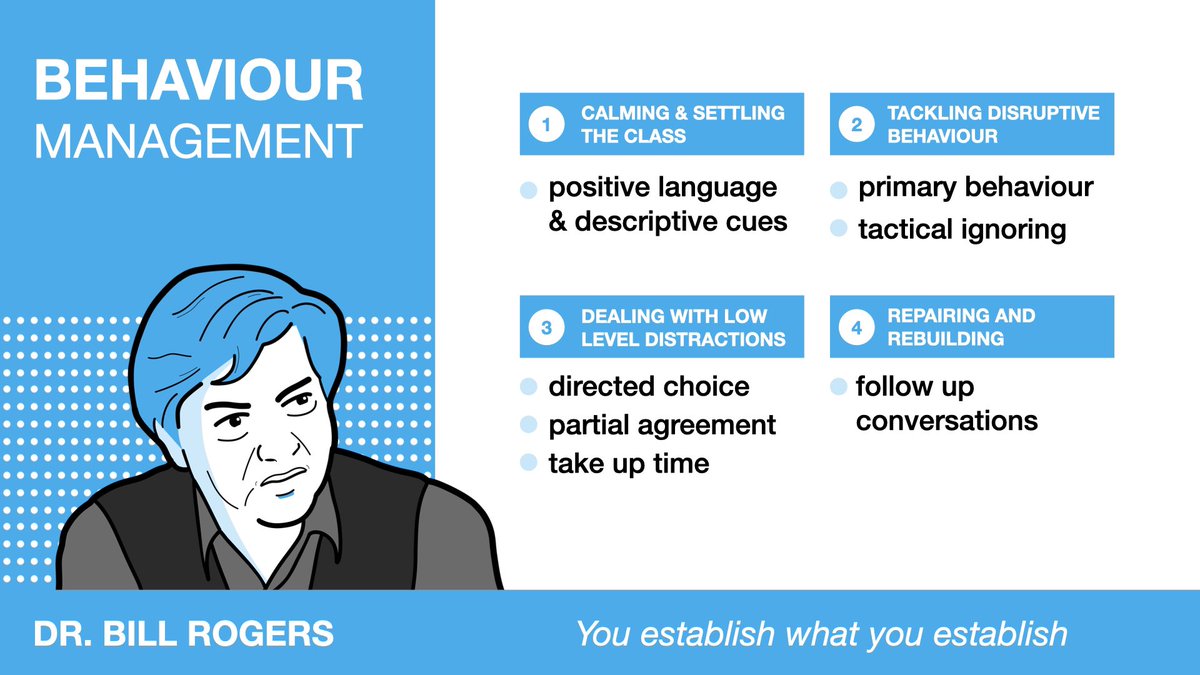
 POSITIVE LANGUAGE
POSITIVE LANGUAGE 